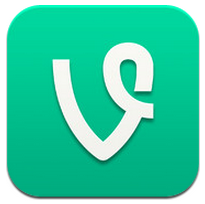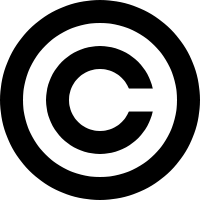Pinterest is a relatively new social photo sharing website, and is currently one of the hottest spots on the Internet. The site generates massive amounts of referral traffic, rivaling popular content sharing sites such as Twitter and YouTube. There are roughly 11 million registered Pinterest users (a number that is growing extremely rapidly) with as much as 97% of active users being female. Users “pin” a photo to Pinterest from their own collection or from websites. Once pinned, the photo sits inside the user's “boards,” which are organized around a particular topic such as 'home,' 'technology,' 'kids,' or 'crafts.' When a viewer clicks the photo in Pinterest, he or she is redirected to the website from which the photo was pinned. As a result, web-savvy businesses are using Pinterest as traffic driver that directs highly-marketable consumers to their websites. Copyright Issues Some, however, have questioned Pinterest's model, asking whether the posting of photographs belonging to others is actually nothing more than copyright infringement. See, for example, “Pinterest Might Be Enabling Massive Copyright Theft,” and “Pinterest: Is It A Facebook Or A Grokster?” Pinterest's Copyright Policy makes it clear that it is relying on provisions of the Digital Millennium Copyright Act of 1998 (“DMCA”) to insulate it from allegations of copyright infringement. Section 512(c) of the DMCA, for example, provides a safe harbor to online service providers (“OSP”) that store potentially-infringing material as long as they satisfy the following requirements:
- The OSP must “not receive a financial benefit directly attributable to the infringing activity;”
- The OSP must not have actual knowledge that it is hosting infringing material or be aware of facts or circumstances from which infringing activity is apparent; and
- The OSP must, upon receiving notice of copyright infringement from a copyright owner or its agent, act expeditiously to remove the purported infringing material.
Pinterest's copyright page describes the information required to put it on notice, and provides a form for reporting the alleged infringement. Pinterest Responds to Critics Aware of the copyright concerns, Pinterest recently responded to these concerns in a post on its blog entitled “Growing Up.” In the post, Pinterest writes: “As a company, we care about respecting the rights of copyright holders. We work hard to follow the DMCA procedure for acting quickly when we receive notices of claimed copyright infringement. We have a form for reporting claims of copyright violations on our site here. Every pin has a flag to make reporting easier. We also know that copyright is a complicated and nuanced issue and we have knowledgeable people who are providing lots of guidance.” To further prevent inadvertent copyright infringement, the company also announced a snippet of code that blocks photos from websites containing the code from being pinned, although there are likely numerous ways to maneuver around the code. The Current Aftermath Pinterest's blog post has generated opinions on both sides of the issue, ranging from disbelief that the service can evade copyright infringement, to others that consider the site's policy to be “genius:”
Yet another viewpoint comes from a photographer and frequent Pinterest contributor, who argues that copyright holders should embrace the traffic driven by services such as Pinterest rather than focus on the copyright issues (see, “Why Photographers Should Stop Complaining About Copyright and Embrace Pinterest”). This viewpoint is one of the most common, as evidenced by the numerous companies and websites that encourage pinning and the resulting traffic boon regardless of the potential copyright issues involved. Indeed, many sites have started adding a “Pin it” button to encourage the pinning of their copyright-protected photographs and graphics. The Future There's no question that Pinterest, like so many new services before it, pushes the boundaries of copyright law. Although Pinterest's policies and prevention measures are unlikely to completely insulate it from copyright infringement lawsuits, they make it clear that the company is aware of the issues and is looking for ways to manage them. Reminder to the Higher Education Community Regarding the DMCA Much like Pinterest, most institutions of higher education qualify as an internet service provider (transmitting data) and/or an online service provider (storing data) under the DMCA. Institutions must, however, establish and maintain the proper procedures in order to benefit from the safe harbor provisions of the DMCA. For example, universities must have a procedure in place for receiving notice of copyright infringement from a copyright owner or its agent, and must act expeditiously to remove the purported infringing material once notice is received. Further, online service providers must designate – on its website and to the Copyright Office – an agent to receive notifications of claimed infringement. If you’re unsure whether your university has designated an agent, the Register of Copyrights has a current directory of all designated agents available at the Directory of Service Provider Agents for Notification of Claims of Infringement.


 Late last month,
Late last month,  Today, most universities and colleges have their own YouTube channel where they host videos about the institution, faculty, and students. These videos often let prospective students interact with the institution in ways not previously possible. While the copyright status of university-created and –uploaded videos is usually obvious, recent events have shown that any YouTube channel can fall victim to false copyright infringement claims. On August 29, 2011, numerous videos from the official YouTube channels of musicians Justin Bieber, Lady Gaga, Rihanna, and others were removed by YouTube as the result of copyright infringement claims submitted by an entity called “iLCreative.” Like most online content hosts, YouTube has
Today, most universities and colleges have their own YouTube channel where they host videos about the institution, faculty, and students. These videos often let prospective students interact with the institution in ways not previously possible. While the copyright status of university-created and –uploaded videos is usually obvious, recent events have shown that any YouTube channel can fall victim to false copyright infringement claims. On August 29, 2011, numerous videos from the official YouTube channels of musicians Justin Bieber, Lady Gaga, Rihanna, and others were removed by YouTube as the result of copyright infringement claims submitted by an entity called “iLCreative.” Like most online content hosts, YouTube has